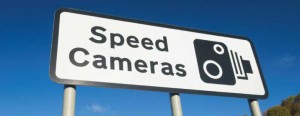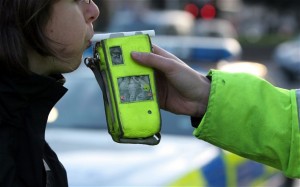Top Ten Offences that need a Motoring Solicitor
General Practice Solicitors who deal with general criminal law often aren’t fully familiar with the intricate legal arguments that can be put forward on your behalf if you have been accused of any of the road traffic offences below;
Fail to Provide driver information
s.172 driver information requests are sent to drivers following a motoring offence.
The penalty for not returning this request is six points on your licence.
However, S172(4) and S172(7)(b) Road Traffic Act 1988 provide statutory defences.
If you can show that you used reasonable diligence to try to work out the driver, or if it wasn’t possible to name the driver because you didn’t receive the section 172 request, you have a defence.
No Valid Insurance Offences
Your reasons for driving without valid insurance are not taken into account when you are stopped. With no motor insurance cover in place, you are considered to be at fault and as such as considered guilty of the offence.
Your driving licence will be endorsed with six to eight points if you plead guilty or are convicted.
Often, a motorist’s insurance policy will have been cancelled without them being aware of it.
If you can show you honestly believed you had valid motor insurance, you can use a Special Reasons Argument.
Speeding – Points, Fines and Disqualifications
The penalty for speed related motoring offences is three to six penalty points, a discretionary ban if warranted by your offence, court costs as well as a fine.
Specialist expert evidence is required if you are going to succeed in defending your alleged speeding offence in court.
Totting up 12 points on your driving licence is very easy with so many speed cameras and mobile speed traps and vans on the road. An experienced motoring solicitor can help you to keep your licence even if you have 12 points or more, by preparing an exceptional hardship defence for you.
Drink Drive Road Traffic Offences
The legal UK drinking and driving breath reading limit is 35mg. A drink drive conviction involves a minimum mandatory licence ban of 1 year.
If you can show that you were either; not the driver, weren’t on a public road or place, or consumed the alcohol only once you finished driving then you have a defence.
Some motorists have also escaped a drinking and driving ban due to a genuine emergency requiring you to drive, or because they only drove a very short distance, as well as in circumstances where they unknowingly consumed any alcohol at all.
Drunk in Charge Offences
To be found guilty, the prosecution need to prove to the court that you were above the legal drink drive limit and that you were in charge of the vehicle at that time.
You have a viable defence if you can show you were not intending to drive until you were under the drink drive limit.
The Court will impose either ten points or a discretionary ban.
Caught Driving with a Mobile Phone
For an offence to be committed, you have to be holding your phone while using it.
Because use of a phone can be a grey area, Courts often have differing views.
You are still driving even when stationary at traffic signals or in a temporary hold up.
Due Care & Attention Motoring Offences
The standard of your driving must be proved beyond any reasonable doubt by the prosecution to have dropped below the standard of a competent and careful driver in order to convict you of driving without due care.
It covers many motoring offences from knocks in car parks to undertaking on a motorway.
The police can offer a Driver Improvement Course for without due care offences as an alternative to prosecution.
Failing to Report Offences
Section 170 of the RTA 1988 states that following an accident, if there is damage to either a vehicle, person or property then you are under a legal duty to stop and provide your details.
From the time of your accident you have 24 hours to report it to the police if you were unable to exchange details at the time.
This offence carries five – ten points on your licence or a driving ban at the Magistrates discretion.
If you can demonstrate to the Court that you weren’t aware you had been in an accident and caused damage and that it in not unreasonable for that to be the case then you have a legal defence.
Courts consider these driving offences to be very serious. For that reason it has the power to impose community service or even a custodial sentence if the circumstances of your offence warrant it.
Dangerous Driving Offences
To be convicted of dangerous driving in court, the prosecution need to demonstrate that at the time of the offence, your driving quality fell beneath that expected. In addition, it needs to show that it was obvious to a careful driver that the driving is dangerous.
Magistrates Courts take dangerous driving offences very seriously, and as such, the punishments are commensurate with their views.
As such, if convicted you face a minimum twelve month licence disqualification, which automatically includes a full re-test before you are allowed back on the road, as well as potential custody if your case is deemed to deserve it.
Driving without a Licence
There is frequently confusion surrounding this offence.
If you were stopped driving without having L plates on display, or having never passed a driving test, then these would be endorsable offences.
Should you fail to return your current driving licence to the DVLA when asked to do so, and they then suspend your driving entitlement, the offence is non-endorsable.
It’s untrue that your motor insurance is invalid in the case of ‘no licence’ offences, this is a misnomer. Ask an expert solicitor who only deals with motoring offences and you will have the best advice to protect yourself from the courts mistakes.
An expert motoring law solicitor will be able to advise you on the details of this road traffic offence. Courts frequently misunderstand this offence and whether it should carry points or not.







